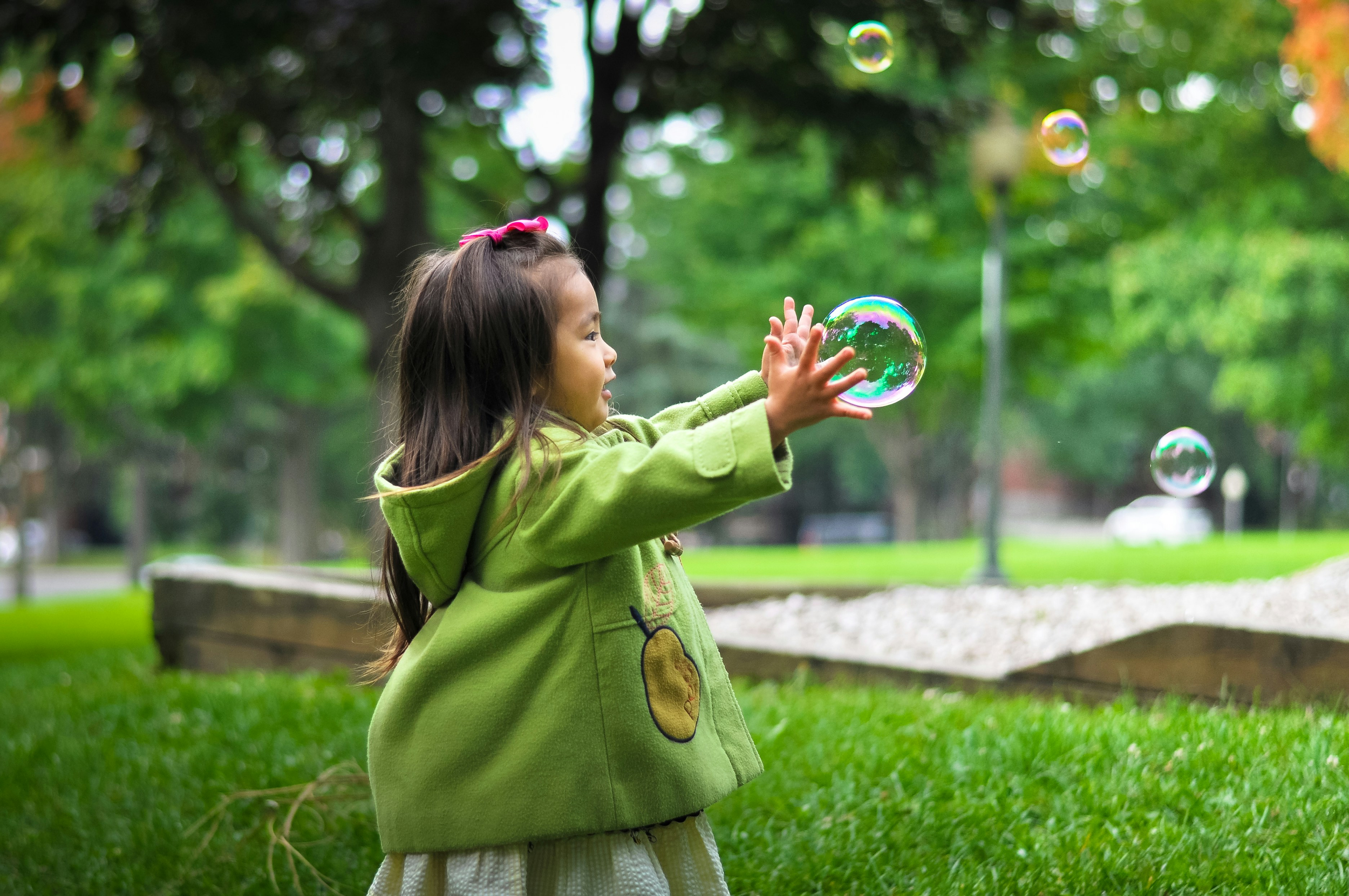When do babies start talking?
Wondering when your little one will say their first words?
Babies begin to develop their listening and language skills while in utero as the structural parts of the cochlea in the middle ear are well formed by 15 weeks gestational age and are anatomically functional by 20 weeks gestation (1). Babies show recognition of their mother’s voice and language soon after birth (2). From only a few days old your baby will establish interaction with you through eye contact and spontaneous or imitative facial movements e.g. sticking out their tongue or pouting their mouth.
When do babies understand their names?
Your baby begins to understand speech before they start to talk. From around 3 months old they will begin to respond to different tones you use by smiling, laughing or quieting to listen. By 9-12 months your baby will understand some common everyday words e.g. ‘car’, ‘drink’, and ‘dog’. They will understand simple instructions e.g. ‘give it to mummy’ and will respond to their name being called by one year of age.
When do babies babble?
Your baby will make sounds from birth such as crying, coughing and low-pitched content sounds. Making early sounds and crying are the foundations for talking as they help your baby learn to control air from their lungs, use their vocal cords and control the muscles for speech.
Your baby will start making cooing noises (single vowel sounds) e.g. ‘ahh’, and ‘ooh’, from 4-8 months.
Babbling begins around 7-9 months (combining consonant and vowel sounds) e.g. ‘dad-dad’, ‘mum-‘mum’. Your baby will enjoy repeating sounds frequently, they will practice babbling by themselves for amusement and also to converse with you.
When do babies say their first word?
Between 12 and 18 months your baby will begin to say their first words. Common first words include ‘mama’, ‘dada’, and ‘baba’ (for ball or bottle). Although the sounds may not be perfect yet, the words will be used in the correct context. Babies find it easier to say ‘d’ sound over an ‘m’ sound so for that reason your baby will typically learn to say ‘dada’ before ‘mama’!
How to teach your baby to talk
There are lots of activities that you can incorporate into your daily routine to support your baby’s speech and language development in the early years.
Talk to your baby – use a range of volume and pitch as babies respond to high and soft tones. Talk about what’s around you and use simple language e.g. 2-3 word phrases rather than long sentences.
Teach your baby words – name familiar objects and toys that your baby likes to look at. Babies will start to learn the names of everyday and familiar activities first e.g. ‘bath’, ‘nappy’, ‘milk’, ‘bottle’ etc.
Respond to your baby’s crying – this is the earliest form of communication and parents can respond by holding, comforting or singing to their baby to soothe.
Copy what your baby says – your baby will enjoy when you copy the sounds they make, they will learn to repeat the sound back to you and have a ‘conversation style’ interaction.
Play with your baby – let your baby explore toys by holding and manipulating them. Name the toys, encourage them to look at and follow the toys with their eyes, and play peek-a-boo games with them.
Read to your baby – look at books together that have big and colourful pictures. Read to your baby and encourage them to hold/touch the book.
Sing nursery rhymes with your baby – singing nursery rhymes helps your baby’s listening, attention and understanding. Carrying out signs or actions with words will help your baby associate the word with a visual action e.g. ‘incey-wincey-spider’ or ‘five little ducks’
When to see a speech and language therapist?
Consider making an appointment for a specialist assessment if your baby is:
Not babbling at 4 to 6 months old
Not making eye contact by 12 months old
Not using many sounds or gestures by 12 months
Not understanding basic commands like ‘no’, and ‘stop’ by 18 months
Not carrying out skills that they previously had like babbling, pointing, using gesture
What does a speech and language therapist look for?
Speech and Language Therapists are specialists in assessing all areas of a child’s listening, understanding, speech, social interaction and communication. There are many reasons your child may have difficulties, some things that we consider in our assessment are:
Speech and Language delay
Developmental language disorder
Developmental verbal dyspraxia
Hearing loss/hearing difficulty
Speech sound errors
Dysfluency (stammering)
Autism or social communication difficulties
Developmental delay
Following an assessment, we are skilled in providing evidence-based intervention to support your child’s speech, language and communication skills.
At Baby Speak we offer bespoke Speech and Language Therapy assessment and therapy sessions for your little one. See our bookings page here.
References
Graven, S.N. and Browne, J.V. (2008) ‘Auditory development in the fetus and infant’, Newborn and Infant Nursing Reviews, 8(4), pp. 187–193. doi:10.1053/j.nainr.2008.10.010.
Kisilevsky, B.S. et al. (2003) ‘Effects of experience on fetal voice recognition’, Psychological Science, 14(3), pp. 220–224. doi:10.1111/1467-9280.02435.
Sheridan, M., Sharma, A. and Cockerill, H. (2014) From birth to five years: Children’s Developmental Progress. London: Routledge.


